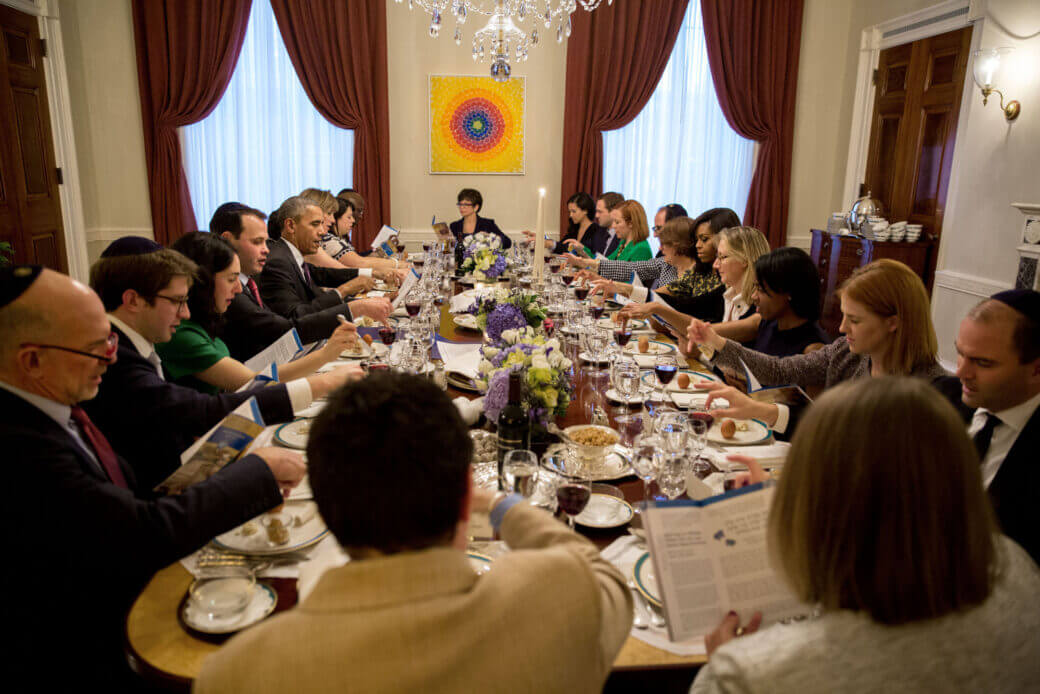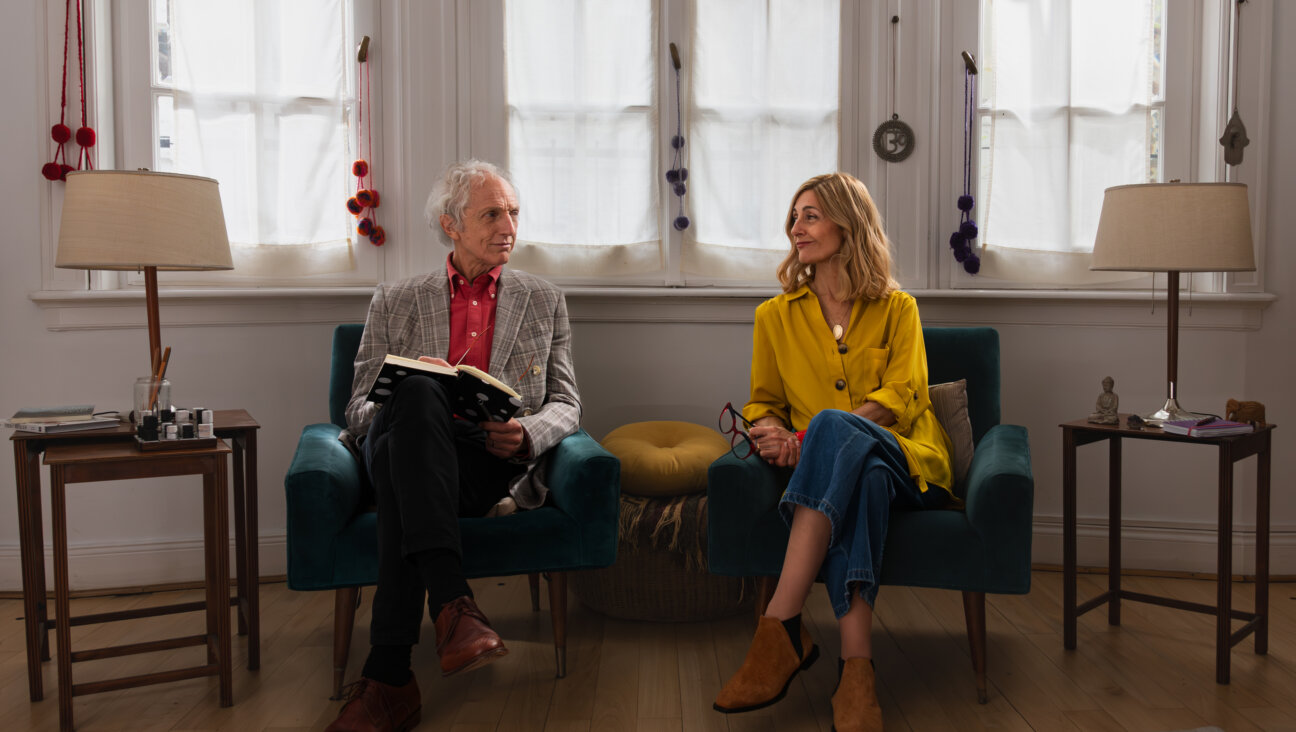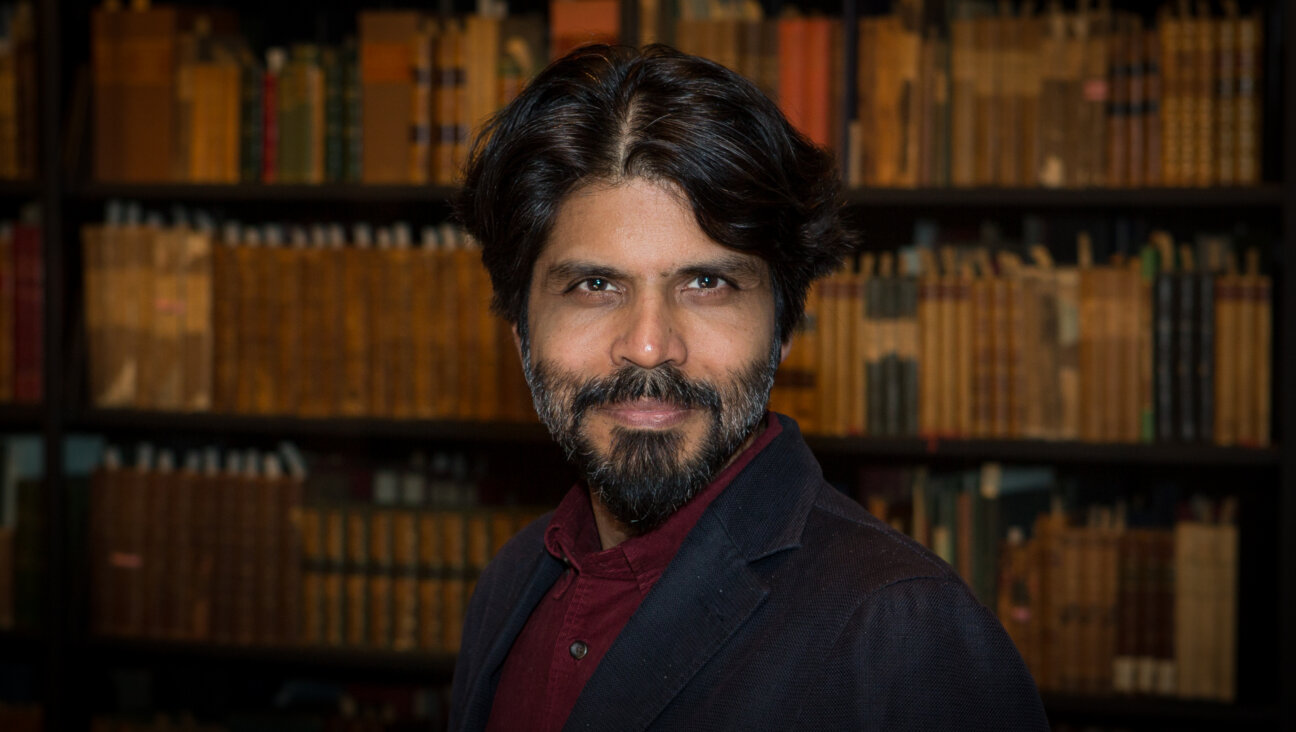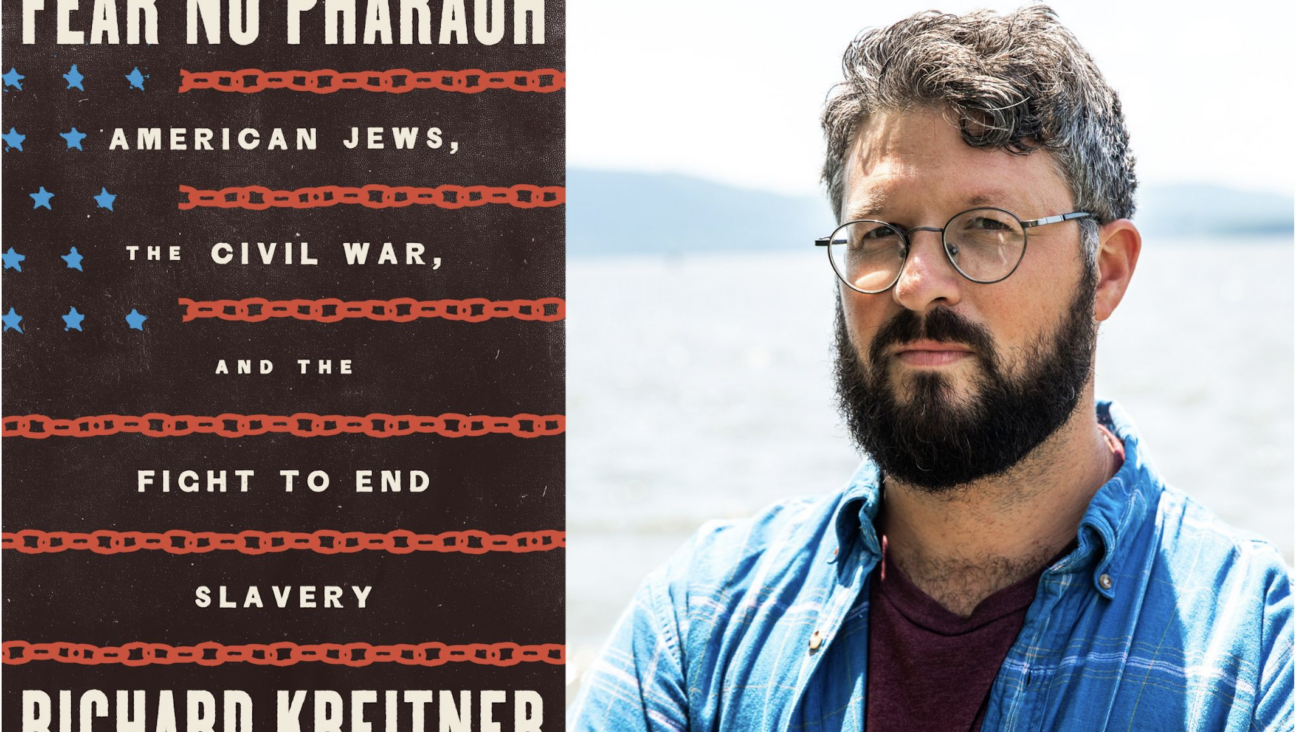The Ghost Exhibition
When Max Stern, owner of the Dominion Gallery in Montreal, died in 1987, he was one of the most important art dealers in Canada. As his estate was liquidating the 5,000 works held at Dominion, representatives came across evidence of another, less voluntary liquidation: Fifty years earlier, Stern’s original gallery — Galerie Stern in Düsseldorf— had sold its artwork at a forced auction. Representatives of the Stern estate became determined to restore the legacy of the persecuted Düsseldorf dealer and to locate and recover more than 200 objects that he was compelled to sell in 1937.
Now, in an inspired move, some of those works are part of an event being billed as a “ghost exhibition” — an art exhibition without the art. The exhibit, Auktion 392: Reclaiming the Galerie Stern, Düsseldorf — named after its sale number at the Lempertz auction house in Cologne — is being held in New York at the Leo Baeck Institute. Instead of the actual artwork, the show includes black-and-white images of several dozen missing pieces, according to Clarence Epstein of Concordia University, who oversees the Max Stern Art Restitution Project. (Stern left the bulk of his estate to three institutional heirs: Concordia and McGill universities in Montreal, and The Hebrew University of Jerusalem.)
The images offer eerie shadows of what was once the thriving trade of a German gallery. Only two are in color, indicating that these artworks have been located and the Stern claims have been resolved. (“Color is returned to a story that was very dark,” Epstein said at the exhibition’s opening last month.) The intent of the exhibition is to encourage governments, museums, collectors and those in the art trade to focus on restitution, he said.
Max Stern inherited his original gallery from his father, Julius, in 1934. In many ways, Max was a typical German Jewish art dealer. With a regional clientele, he was successful, but not flamboyant — hardly in the league of such avant-garde, cosmopolitan dealers as Alfred Flechtheim and Paul Cassirer. Nor did he represent Expressionist artists, such as Egon Schiele or Gustav Klimt, or stock artworks that were considered offensive, edgy or decadent in their day. Experts say that the Lempertz catalog for Auktion 392 includes images of wholesome women and bucolic landscapes, whose aesthetic appeal and financial value were probably limited to that time and place.
“The Gestapo did not have much against him,” said Willi Korte of Silver Spring, Md., an art tracker who is assisting the estate with restitution claims for the Stern works. “His art was desirable. The only thing they had against him was, he was Jewish.”
Stern dealt primarily with traditional 19th- and early 20th-century paintings and with works on paper for middle-class customers. His stock was not of museum quality; such works generally were not described in the literature, nor were they inventoried or photographed — which made them harder to identify decades later with any certainty.
“From 1935 to 1937, Stern was trying to fight what he thought might be a fightable situation against the Nazi order to close his business,” Korte said.
The Lempertz sale was the end of Galerie Stern in Germany. The works were sold at a fraction of their value, and Stern did not have access to the proceeds from the auction. Because the works were sold under duress, all are eligible for restitution — if they can be identified and located. Stern recovered a small number after World War II.
Last October, the estate regained the first painting: “Aimee, a Young Egyptian” (1869), also known as “Cimbals” by Emile Lecomte-Vernet. Sotheby’s, which discovered the painting, had sold it in 2001. The title was different, and there were no pictures of the Lecomte-Vernet available from Stern’s estate, but the measurements and details of the work determined it to be a Stern painting.
Another painting, Nicolas Neufchatel’s “Portrait of Jan van Eversdyck” (1580), was restituted to the estate in time for the opening of the Leo Baeck exhibition. The painting was part of the Yannick and Ben Jakober Foundation’s portrait collection in Mallorca. The Holocaust Claims Processing Office of the New York State Banking Department, which is assisting with the claim, provided documentation that it had belonged to the Stern estate. Because of national patrimony laws, however, the Neufchatel could not easily be exported from Spain. In what the foundation called a “Solomonic decision,” the portrait will remain on permanent loan to Spain, although the title has been transferred to the Stern estate.
The exhibition, which includes some of the documentation showing the Nazis’ constraints on Jewish art dealers, will be on display at Leo Baeck until May 11. Then, it is scheduled to be shown in Israel and Europe.
Marilyn Henry is the author of “Confronting the Perpetrators: A History of the Claims Conference” (Vallentine Mitchell).
The Forward is free to read, but it isn’t free to produce

I hope you appreciated this article. Before you go, I’d like to ask you to please support the Forward.
At a time when other newsrooms are closing or cutting back, the Forward has removed its paywall and invested additional resources to report on the ground from Israel and around the U.S. on the impact of the war, rising antisemitism and polarized discourse.
Readers like you make it all possible. We’ve started our Passover Fundraising Drive, and we need 1,800 readers like you to step up to support the Forward by April 21. Members of the Forward board are even matching the first 1,000 gifts, up to $70,000.
This is a great time to support independent Jewish journalism, because every dollar goes twice as far.
— Rachel Fishman Feddersen, Publisher and CEO
2X match on all Passover gifts!
Most Popular
- 1

Film & TV What Gal Gadot has said about the Israeli-Palestinian conflict
- 2

News A Jewish Republican and Muslim Democrat are suddenly in a tight race for a special seat in Congress
- 3

Fast Forward The NCAA men’s Final Four has 3 Jewish coaches
- 4

Culture How two Jewish names — Kohen and Mira — are dividing red and blue states
In Case You Missed It
-

Fast Forward Secretive GOP firm distorts Democratic candidate’s views on Israel in NJ governor race
-
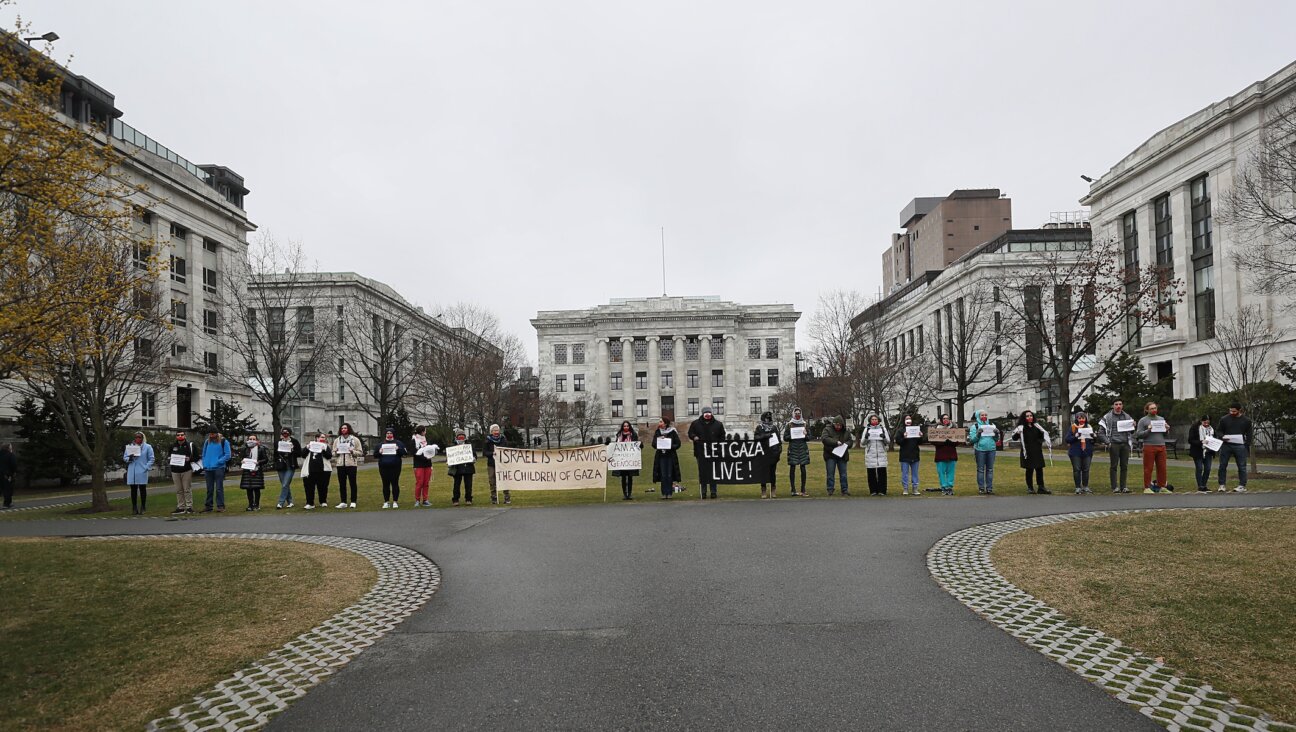
Fast Forward Trump administration to review nearly $9 billion in Harvard funding over campus antisemitism
-

Yiddish World Yiddish fans in Berlin launch a Yiddish open mic series
-

Fast Forward Cornell pro-Palestinian student leader opts to leave US, as Columbia ‘self-deportee’ makes her case to return
-
Shop the Forward Store
100% of profits support our journalism
Republish This Story
Please read before republishing
We’re happy to make this story available to republish for free, unless it originated with JTA, Haaretz or another publication (as indicated on the article) and as long as you follow our guidelines.
You must comply with the following:
- Credit the Forward
- Retain our pixel
- Preserve our canonical link in Google search
- Add a noindex tag in Google search
See our full guidelines for more information, and this guide for detail about canonical URLs.
To republish, copy the HTML by clicking on the yellow button to the right; it includes our tracking pixel, all paragraph styles and hyperlinks, the author byline and credit to the Forward. It does not include images; to avoid copyright violations, you must add them manually, following our guidelines. Please email us at [email protected], subject line “republish,” with any questions or to let us know what stories you’re picking up.







